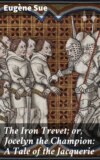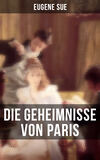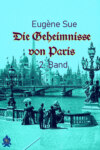Kitabı oku: «The Pocket Bible; or, Christian the Printer: A Tale of the Sixteenth Century», sayfa 5
"I am a Catholic, but by the blood of God! I prefer to be cut to pieces rather than submit to such extortion. May the devil take the monks!"
"You will be wrong," said Christian to him in a low voice. "I revolt as much as you at the indignity. But what is to be done against force? Submit to the ignominy."
"I shall protest at the peril of my life! Such excesses dishonor religion," the man answered Christian, and stepping out of the gate into the square with a firm step, he crossed the place without turning his head in the direction of the altar. Hardly, however, had he passed by when the tattered mob who stood near the monks, ready at the latters' beck, rushed forward in pursuit of the unhappy fellow; they overtook him, surrounded, and bawled at him: "Heretic!" "Lutheran!" "He insults the image of the mother of the Savior!" "Down on your knees!" "The canting hypocrite!" "Down on your knees!" "Death to the heretic!"
While these fanatics surrounded their victim, Christian said to his companion:
"Let us profit by the tumult to escape from these ferocious beasts; unfortunately it were idle to seek to snatch that senseless but stout-hearted man from the clutches of his assailants."
Christian and the unknown man in turn stepped out of the gate into the square and were hurriedly walking towards the opposite issue without stopping at the altar when, being caught sight of by the monks, the latter cried out:
"There go two other heretics! They are trying to escape without kneeling before the holy Virgin! Stop them! Bring them back and make them empty their purses!"
The voices of the Franciscans did not reach the ears of the demoniac pack, greedy as it was for its prey; they emitted savage yells as they beat to death, not a heretic, but a Catholic, whose sin consisted in refusing to submit to an adoration imposed upon him in a brutal manner, and which he otherwise would cheerfully have complied with. After the unhappy fellow had bravely defended himself with his cane, the only weapon that he carried, he was finally overwhelmed by numbers and fell livid, bleeding, and almost unconscious upon the pavement. A horrid-looking shrew seized him by the hair and while she dragged the almost lifeless body towards the altar other dastards from the dregs of the mob struck him in the face with their feet.
"Mercy!" cried the unhappy fellow in a faint voice. "Jesus! – My God! – Have pity upon me! – They are murdering a good Catholic!"
These were the brave fellow's last words. His voice was soon heard no more. The butcher with whom Christian had exchanged a few words ran towards and joined the assassin mob. He piously knelt down before the statue of the Virgin, then rose, drew his knife, and brandishing it in the air cried:
"St. James! Let me bleed the damned Lutheran! It will be worth an indulgence to me! You know, bleeding is my profession!"
The sanguinary sally was received with loud outbursts of laughter; room was made for the butcher near the bleeding body; he squatted upon its still palpitating chest, slashed his knife through the prostrate man's throat, cut the head from the trunk, seized it by the hair, and, holding up the shocking trophy to the gaze of the mob, he cried with wild ecstasy:
"The heretic dog would not bow down before the mother of the Savior – he shall now plant his forehead on the pavement at her feet!"
So said, so done. Followed by the demented band at his heels, the butcher ran back to the altar, holding the livid head in his hands, red and streaming with the warm blood of the victim; he knelt down himself, and slammed the head face down upon the ground at the feet of Mary, amidst the savage acclaim of his fellow assassins, all of whom piously threw themselves down upon their knees like himself.
"Oh, monsieur, this is frightful!" murmured Christian suffocating for breath as his companion and he stepped out of the square. "To think that such horrors are perpetrated in the name of the benign mother of Christ! Oh, the wretches, as stupid as they are bloodthirsty!"
"Ignorance, misery and fanaticism! – that is their excuse. Let us not blame these unhappy people; they are what the monks have made them," answered the unknown with a bitter and desolate smile. "Oh, these monks, these monks! When will society be finally purged of the infernal breed!"
Christian and his companion hastened their steps towards the artisan's house, nor dared they to turn and look behind.
CHAPTER V.
MONSIEUR JOHN
"Fear not; I have a certain means of regaining the good graces of my family" – such were among the last words said by Hervé to Fra Girard as they stepped out of the Church of St. Dominic, where he purchased the letter of indulgence that absolved him in advance from all his future misdeeds. Hervé was, alas! true to his promise. Back long in advance of his father that evening under the paternal roof, he pursued his plan of infernal hypocrisy, and succeeded in awaking in his mother's breast the same hopes for the better that he awoke in the breast of Christian. Seeing Hervé pray her feelingly to suspend her judgment with regard to himself on the theft that he was suspected of; seeing him admit that, however late, he now realized the fatal effect of a dangerous influence over himself; finally, seeing her son respond with unexpected effusiveness to the affectionate greeting of his sister, Bridget said to herself, as Christian had done: "Let us hope; Hervé is returning to better sentiments; the painful conversation of last night has borne its fruit; our remonstrances have had a salutary effect upon him; the principles that we have inculcated in him, will regain their sway. Let us hope!"
With a heart, now as brimful of joy as it was of distress on the previous evening, the happy mother busied herself with preparing the evening meal. No less joyful than Bridget at the return of Hervé's tenderness, Hena was radiant with happiness, and the sentiment enhanced her beauty. Barely in her seventeenth year, lithesome and generously built, the young girl wore her golden-blonde hair braided in two strands coiled over her head and crowning her blooming cheeks. The gentleness of her features, that were of angelic beauty, would have inspired the divine Raphael Sanzio. White as a lily, she had a lily's chaste splendor; candor and kindness stood out clear in the azure of her eyes. Often did those eyes rest upon that naughty yet so dearly beloved brother, of whom the poor child had feared she was disliked. Seated beside him, and engaged at some needle-work, she now felt herself, as in former days, filled with sweet confidence in Hervé, while the latter, once more affectionate and jovial as ever before, entertained himself pleasantly with his sister. By a tacit accord, neither made any allusion to the recent and painful past, and chatted as familiarly as if their fraternal intimacy had never suffered the slightest jar. Despite his self-control and profound powers of dissimulation, Hervé was ill at ease; he felt the necessity of speaking, and sought distraction in the sound of words in order to escape the obsession of his secret thoughts. He rambled at haphazard from one subject to the other. Brother and sister were thus engaged as Bridget absented herself for a moment on the floor above in pursuit of some household duty.
"Hervé," the young girl was saying to her brother, thoughtfully, "your account interests me greatly. How old would you take that monk to be?"
"I could not tell; perhaps twenty-five."
"He had a face that was at once handsome, sad and benign, did he not? His beard is of a somewhat lighter hue than his auburn hair; his eyes are black, and he is very pale; he has a sympathetic countenance."
While thus chatting with her brother, Hena proceeded to sew and could not notice the expression of surprise that Hervé's face betrayed. His feelings notwithstanding, he answered:
"That is a very accurate description. One must have observed a person very attentively in order to preserve so life-like a picture of him. But what induces you to believe that the monk in question is the handsome auburn-haired monk, whose picture you have just sketched?"
"Why, did you not just tell me, dear brother, that you recently witnessed a touching action of which a monk was the author? Well, it struck me that probably he was the friar that I described. But proceed with the story."
"But who is that monk? Where did you see him? How did you happen to know him?" Hervé interrogated his sister in short, set words, inspired by an ill-suppressed agonizing feeling of jealousy. The naïve girl, however, mistaking the sentiment that prompted her brother's question, answered him merrily:
"Oh! Oh! Seigneur Hervé, you are very inquisitive. First finish your story; I shall tell you afterwards."
Affecting a pleasant tone, Hervé replied as he cast upon his sister a sharp and penetrating look: "Oh! Oh! Mademoiselle Hena, you twit me with being inquisitive, but, it seems to me, that you are no less so. Never mind, I shall accommodate you. Well, as I was saying, when passing this morning by the porch of St. Merry's Church, I saw a crowd gathered, and I inquired the reason. I was answered that a babe, six months old at the most, had been left over night at the portal of the church."
"Poor little creature!"
"At that moment a young monk parted the crowd, took up the child in his arms, and with tears in his eyes and his face marked with touching compassion, he warmed with his breath the numb hands of the poor little waif, wrapped the baby carefully in one of the long sleeves of his robe, and disappeared as happy as if he carried away a treasure. The crowd applauded, and I heard some people around me say that the monk belonged to the Order of the Augustinians and was called Brother St. Ernest-Martyr."
"Why 'Martyr' – and he so charitable?"
"You do not seem to know, sister, that when taking orders a monk renounces his family names and assumes the name of some saint – such as St. Peter-in-bonds, or St. Sebastian-pierced-with-arrows, or St. Lawrence-on-the-gridiron, or St. Anthony-with-the-pig – "
"Oh, what mournful names! They make one shudder. But the last one is really grotesque."
"Well," proceeded Hervé, without detaching his prying eyes from Hena, "Brother St. Ernest-Martyr was hastily walking away with his precious burden when I heard someone remark:
"'I am quite sure the good monk will take the poor little one to Mary La Catelle' – "
"I thought so!" exclaimed Hena ingenuously; "I knew it was he; it is my monk!"
"How, your monk?" asked Bridget smiling, her heart dilating with joy as she descended the stairs and saw her son and daughter engaged in cordial conversation as was their former wont. "Of what monk are you talking, Hena, with so much unction?"
"Do you not know, mother, La Catelle and her school? Do you remember that charming woman?"
"Certainly, I do. I remember the young widow Mary La Catelle. The school that she founded for poor children is a work of touching charity, which, however, also owes a good deal to John Dubourg, the linen draper of St. Denis Street, and to another rich bourgeois, Monsieur Laforge. They both generously sustain La Catelle and her sister Martha, the wife of Poille, the architect, who shares with her the maternal cares that she bestows upon poor orphans whom she takes up in her house – a place which has justly earned the name of 'the house of God'."
"Do you remember, mother," Hena proceeded with her reminiscences, "that when we went to the house of La Catelle, it happened to be school hour?"
"Yes, an Augustinian monk was instructing a group of children who stood around him or sat at his feet, and some were seated on his knees."
"Well mother, I listened to the monk as he was explaining to the children the parable of: 'Wicked are they who live on the milk of a sheep, who clothe themselves in her fleece, and yet leave the poor beast without pasture.' He uttered upon that subject words imprinted with such sweet and tender charity, and yet so easy for the intelligence of children to grasp, that tears came to my eyes."
"And I shared your sister's emotion, Hervé," replied Bridget, addressing her son, who, silent and absorbed in his own thoughts, had dropped out of the conversation. "You can not imagine with what charming benignity the young monk instructed those little ones; he measured his words to their intelligence, in order to indoctrinate them with the simple and pure evangelical morality. Mary La Catelle assured us that his knowledge was no less than his virtue."
Two raps at the street door from without interrupted the conversation.
"At last!" said Bridget to Hervé. "This is surely your father. The streets are not quite safe at night. I prefer to see him indoors. I hardly think we shall see my brother this evening. The hour for supper is long gone by," observed Bridget, stepping towards her husband, to whom Hervé had opened the house door.
Christian came in accompanied with the unknown personage, a young man of, however, a striking countenance by reason of its expression of deliberate firmness. His black eyes, instinct with intelligence and fire, were set so close that they imparted a singular character to his pale and austere visage. At the sight of the unexpected visitor Bridget made a gesture of surprise.
"Dear wife," said Christian, "I have brought Monsieur John along for supper. He is an old friend whom I accidentally met to-day."
"He is welcome to our house," answered Bridget, while the two children looked at the stranger with curiosity. As was her custom, Hena embraced her father affectionately; but Hervé, looking at him with a timid and repentant eye, seemed doubtful whether to follow his sister's example. The artisan opened his arms to his son and whispered in his ear as he pressed him to his heart:
"I have not forgotten your fair promises of this morning," and turning to his guest: "This is my family – my daughter is an embroiderer, like her mother; my eldest son is, like myself, a printer in Monsieur Robert Estienne's workshop; my second son, who is apprenticed to an armorer, is now traveling in Italy. Thanks to God our children are wise and industrious, and deserve to be loved as my worthy wife and I love them."
"May the blessing of God continue upon your family," answered Monsieur John in an affectionate voice, while Hena and her brother arranged the covers and set upon the table the dishes that had been prepared for the family meal.
"Bridget," said Christian, "where is your brother?"
"I had just been wondering at his absence, my friend; I would feel uneasy, if it were not that I rely upon his bravery, his long sword – in short, upon his general appearance, which is not exactly attractive to sneaking night thieves," added Bridget with a smile. "Neither Tire-Laines nor Guilleris will be very anxious to attack a Franc-Taupin. We need not wait for him; if he comes he will know how to make up for lost time at table, and will take double mouthfuls."
The family and their guest sat down to table, with Monsieur John placed between Christian and Bridget. Addressing her, he said:
"Such order and exquisite propriety reigns in this house, madam, that the housekeeper deserves to be complimented."
"Household duties are a pleasure to me and to my daughter, monsieur; order and cleanliness are the only luxuries that we, poor people, can indulge in."
"Sancta simplicitas!" said the stranger, and he proceeded with a smile: "It is a good and old motto – Holy simplicity. You will pardon me, madam, for having spoken in Latin. It was an oversight on my part."
"By the way of Latin," put in the artisan, addressing his wife, "did Lefevre drop in during the day?"
"No, my friend; I am as much surprised as yourself at the increasing rareness of his calls; formerly few were the days that he did not visit us; perhaps he is sick, or absent from Paris. I shall inquire after him to-morrow."
"Lefevre is a learned Latinist," said Christian, addressing Monsieur John; "he is one of my oldest friends; he teaches at the University. He is a rough and tough mountaineer from Savoy. But under his rude external appearance beats an excellent heart. We think very highly of him."
Christian was about to proceed when he was interrupted by the following ditty that came from the street, and was sung by a sonorous voice:
"A Franc-Taupin had an ash-tree bow,
All eaten with worms, and all knotted its cord;
His arrow was made out of paper, and plumed,
And tipped at the end with a capon's spur.
Derideron, vignette on vignon! Derideron!"
"It is uncle! His favorite song announces him!" said Hena joyfully, as she rose to open the house-door.
CHAPTER VI.
THE FRANC-TAUPIN
Josephin, Bridget's brother, surnamed Tocquedillon the Franc-Taupin, stepped into the room. A soldier of adventure since his fifteenth year, he had run away from the paternal home, and soon thereafter enrolled with the Franc-Taupins, a sort of irregular militia, whose duty it was to dig the trenches intended to cover the approaches of the assailants at the siege of a city. These mercenary soldiers were named "Franc-Taupins" because, like the franc archers, they were "frank" or free from taxation, and because their underground work bore great resemblance to that of the taupe– mole. Once out of their trenches, the saying was, the Franc-Taupins displayed but little courage. Whether justly or unjustly, the poltroonery of the Franc-Taupin became proverbial, as evidenced by the favorite song of Bridget's brother. This personage, however, was anything but a poltroon. Just the reverse. After he had twice or three times turned up the earth at as many sieges, he disdained to belong to a corps of such cowardly renown, and enrolled in another irregular militia, one that stood in general dread – the Adventurers or Pendards, of whom a contemporaneous writer drew the following and, unfortunately, but too truthful picture:
"What a vagabond, flagitious, murderous set are these Pendards! They are deniers of God, ravishing wolves, violators of women, devourers of the people! They drive the good man out of his house, empty his pot of wine and sleep in his bed. Their garb matches their disorderly habits. They wear shirts with long sleeves, open in front and exposing their hirsute chests; their streaked hose do not cover their flesh; their calves are left bare and they carry their socks in their belts for fear of wearing them out. Poultry trembles in the hen-coops at their approach, and so does bacon in the pantry. Brawling, roistering, audacious, ever with their mouths wide open, they love nothing better than to guzzle in company the wine that they have jointly stolen."
Despite his intrepidity in war, and without resembling at all points this picture of the Pendards, Tocquedillon the Franc-Taupin, preserved strong features of the same. For all that, however, he adored, venerated his sister, and from the moment that he sat down at her hearth he would seem metamorphosed. Nothing in either his words or his conduct would then recall the audacious adventurer. Timid, affectionate, realizing how unbecoming the slang of the tavern or of even worse places would be in the presence of Bridget's children, of whom he was as fond as of her herself, he always controlled himself and never uttered in their presence any but decorous language. For Christian he had as much love as respect. As the saying goes, he would have gone through fire for the family. The Franc-Taupin was at this time about thirty years of age; he was lean, bony and about six feet high. Scarred with innumerable wounds, and partly blinded in battle, he wore a large black patch over his left eye. He kept his hair close cropped, his beard cut into a point under his chin, and his moustache twisted upward. His nose was pimply through excessive indulgence in wine, and his thick-lipped mouth, slit from ear to ear, exposed two rows of desultory shark's teeth every time that, as a true roisterer, he gave a loose to his imperturbable mirthfulness.
The moment he stepped into the room, the Franc-Taupin deposited his old and weather-beaten sword in a corner, embraced his sister and her two children, shook hands cordially with Christian, bowed respectfully to the unknown man, and timidly took his usual place at the family table.
Christian came to the relief of his brother-in-law's embarrassment and said to him jovially:
"We would have felt uneasy at your absence, Josephin, if we did not know that you are of those who, with their swords at their side, defy the world and are able to defend themselves against all assailants."
"Oh, brother, the best sword in the world will not protect one against a surprise; the surprise that I have just experienced has knocked me down. As my surprise tastes strongly of salt, I am dying with thirst – allow me to empty a cup." After his cup was emptied the Franc-Taupin proceeded with a scared look: "By the bowels of St. Quenet, what did I see! I'm quite certain that I am not deceived; I have only one eye left, but it is good for two. By all the devils, I saw him! I saw him distinctly! A singular encounter!"
"Whom did you see, Josephin?"
"I saw, just now, just before nightfall, here, in Paris, Captain Don Ignatius Loyola, a Spanish nobleman – a devil of a fighter and an inveterate lover of amorous adventures – a terrible man."
At the mentioning of Ignatius Loyola's name the guest at Christian's table shuddered, while Christian himself asked the Franc-Taupin:
"But who is that Spanish captain the sight of whom in Paris affects you so greatly?"
"Did you really know the man?" inquired Monsieur John in an accent of deep interest. "Did you know Ignatius Loyola personally?"
"I should think I did! I was his page."
"And so, Loyola was a captain?" again inquired Monsieur John, more and more interested in what the Franc-Taupin said. "You must, then, have some information on the man's life, his character, his habits. Please tell us something about him."
"By the bowels of St. Quenet! I was continuously with him for three whole months! By all the devils, I never left his side, either day or night!"
"What were his morals?"
"Oh! Oh! friend guest, I would not like to answer that question in my sister's presence – it is too racy a story."
"Friend Christian," said Monsieur John, "I notice that you are surprised at my curiosity concerning the Spanish captain. You will some day understand that the information in question interests you as well. It will be an interesting history for you to know."
"Hena, Hervé," said the artisan, "supper is nearly ended, my children; it is growing late; you may retire."
"And I," put in Bridget, "have some embroidery to finish; I shall go upstairs and work at it with Hena; I shall come down later and put away the dishes. You can call for me, Christian, if you need anything. You and Josephin can entertain our guest."
Hervé embraced his father with an affectation of increased tenderness, and withdrew to his bedroom; Bridget and her daughter went upstairs. The unknown man and Christian remained alone with the Franc-Taupin, and the latter proceeded, laughing:
"My sister and her children being out of the way, my tongue is at freedom. Tell me, brother, did you ever hear the story of the greyhound? The handsomest bitches sighed after him; he remained insensible to all their tender growls; one day a monk's frock was thrown upon him, and he immediately became as amorous as one possessed. Well, Captain Loyola was as possessed for love adventures as the greyhound in the story, without, however, having need of a monk's frock to give him the start; and – but I was almost forgetting. Do you know, brother, in whose company I saw the fire-eater and hell-rake this evening? With your friend Lefevre."
Christian remained for an instant speechless with astonishment; and turning to Monsieur John, he said:
"I must admit that great is my astonishment. Lefevre, whose name I mentioned to you before, is an austere man, wholly absorbed in scientific pursuits and in study. What can he have in common with the Spanish libertine? I am unable to explain the mystery."
"If you are surprised, brother, no less so am I," replied the Franc-Taupin. "Captain Loyola, whom fourteen or fifteen years ago I knew as the handsomest, gayest and most dissolute of cavaliers, dressed in velvets, silks and lace, looks to-day as tattered as any tramp or starving beggar. The transformation is so radical, that I never would have thought of looking for my frisky Spanish captain under the black smock-frock of a halepopin, had it not been for Lefevre, who, stopping me near the booths of the market place, which I was then crossing, inquired after you. It was then that I looked more attentively at his seedy companion and recognized – Don Ignatius!"
"The man's relations astonish me so much, Josephin, that I am no less impatient than our guest to hear you."
"Well, it was in the year 1521, during the siege of Pampeluna," the adventurer began, "and shortly after my enrollment with the Franc-Taupins. I was digging a trench with them before the place; we were throwing up the earth like veritable moles. The Spaniards made a sortie in order to destroy our works. At the first shot of the Spanish arquebuses, all my companions threw themselves flat down, with their noses in the hole. Their cowardice angered me. I took up my pick and rushed into the melee, plying my improvised weapon upon the Spaniards. A blow with a mace over my head knocked me down half dead. When I recovered consciousness I found myself lying upon the battle field among several of our men, all prisoners like myself. A company of Spanish arquebusiers surrounded us. Their captain, with the visor of his casque raised and mounted upon a Moorish horse as black as ebony, the housings of which were of red velvet embroidered with silver, was wiping his long, blood-stained sword upon the animal's mane. The captain was Don Ignatius Loyola. Moustache turned up in Castilian style, goatee, an olive complexion, intrepid mien, haughty and martial bearing – such was his portrait. He had noticed me pounding his soldiers with my pick, and took a fancy both to my pick and my youth. When he saw that I had regained consciousness, he started to laugh and addressed me in French: 'Will you be my page? Your wideawake face denotes an intelligent scapegrace; I shall furnish you a silver-embroidered red livery and a ducat a month, and you can eat your fill at my residence.' Oh, brother, an offer to eat my fill, to me whose stomach had long been as hollow as the barrel of St. Benoit and as open as an advocate's purse! The prospect of putting on a beautiful silver-embroidered livery, when my hose had for some time been reporting to me from which corner the wind blew! The thought of pocketing every month a ducat, when all my earnings during the whole campaign had so far been a wooden bowl that I plundered somewhere, and that I used for a hat! In token of glad acceptance I seized my pick that lay near me, threw it as far away as I could, and I told Don Ignatius that I accepted, and would follow him to the very devil's residence. The long and short of the affair was that I entered Pampeluna with my new master."
"I feel more and more mystified," interjected Christian; "what service could a page, ignorant of the country's language, render to Don Ignatius?"
"The devil take it! That was the very reason why I was employed by the cunning slyboots of a Don Ignatius. No sooner did I arrive at his residence, than an old majordomo, the only one of his men who spoke French, rigged me up in new clothes, from my feet to my head, – puffed hose of red velvet, white satin jacket, short cloak with silver trimmings, ruffs and bonnet after the Spanish style. Thus behold me, brother, attired as a genuine court page. In those days I had both my eyes – two luminaries of deviltry, besides the cunning nose of a fox cub. Thus dressed up in spick and span dashing new clothes, the majordomo led me to Captain Loyola, 'Do you know,' he asked me, 'why I take you, a Frenchman, for my page? It is because, as you do not know Spanish, you can not choose but be discreet towards the people in my house and those outside.'"
"That is not badly planned," remarked Christian; "Don Ignatius had, I suppose, many amorous secrets to conceal?"
"By the bowels of St. Quenet! I knew him to have as many as three sweethearts at a time: a charming merchant's wife, a haughty marchioness, and a bedeviled gipsy girl, the most beautiful daughter of Bohemia that ever trilled a tambourine. But Captain Loyola, a veritable Franc-Taupin in matters of love, courted behind concealed trenches. He reveled in mystery. 'What is not known does not exist' was, with him, a favorite maxim that the old majordomo, his master's echo, often repeated to me."
"'What is not known does not exist,'" repeated Monsieur John pensively. "Yes, judging by the motto, the man must be just what he has been described to me to be."
"Just listen," Josephin proceeded; "I shall describe to you the experiences that I made the first evening that I served Don Ignatius as page. You will then be able to judge of the scamp's calibre. A fifteen-days' truce was agreed upon between the French and the Spaniards, as a result of the sortie at which I was taken prisoner. As a longheaded man, Captain Loyola proposed to profit by the truce in his amorous intrigues. Towards midnight he summoned me to his side. The devil! If the fellow looked martial in battle outfit, he looked frisky in his court costume! A jacket slashed with gold-embroidered velvet, puffed hose of white satin, shoes turned like a crawfish, plumed bonnet, a gold bejeweled chain on his neck! What shall I say? He shone and glittered, and besides, smelled of balsam! A veritable muskrat! He hands for me to carry a silken ladder and a guitar; takes his dagger and sword; and wraps himself up to the eyes in a taffeta mantle of light yellow. The old majordomo opens a secret door to us; we issue out of the house; after crossing a few narrow streets, we arrive at a deserted little square. My master glides under a balcony that is shut with lattices, takes the guitar from my hands, and there you have him warbling his roundelay. In response to the carol of the moustachioed nightingale, one of the shutters of the balcony opens slightly, and a bouquet of pomegranate blossoms drops at our feet. Don Ignatius picks it up, extracts from amidst the flowers a little note concealed among them, and gives me the guitar together with the bouquet to hold for him. I imagined our evening performance concluded. By the bowels of St. Quenet, it had only commenced! Don Ignatius fanned the sparks of his libidinousness with his guitarade, on the same principle that one fans the sparks of his thirst by chewing on a pork-rind dipped in mustard. But by the way of thirst, brother, let us imbibe that pot; appetite comes with eating, but thirst goes with drinking. He who drinks without being thirsty drinks for the thirst that is to come. Thirst is an animal's quality, but to crave for drink is a quality of man. By St Pansard and St. Goguelu, let's moisten, let's moisten our whistles! Our tongues will dry up soon enough! Unhappy Shrove-Tuesday, the patron of pots and sausages – and the devil take the Pope and all his friarhood!"










